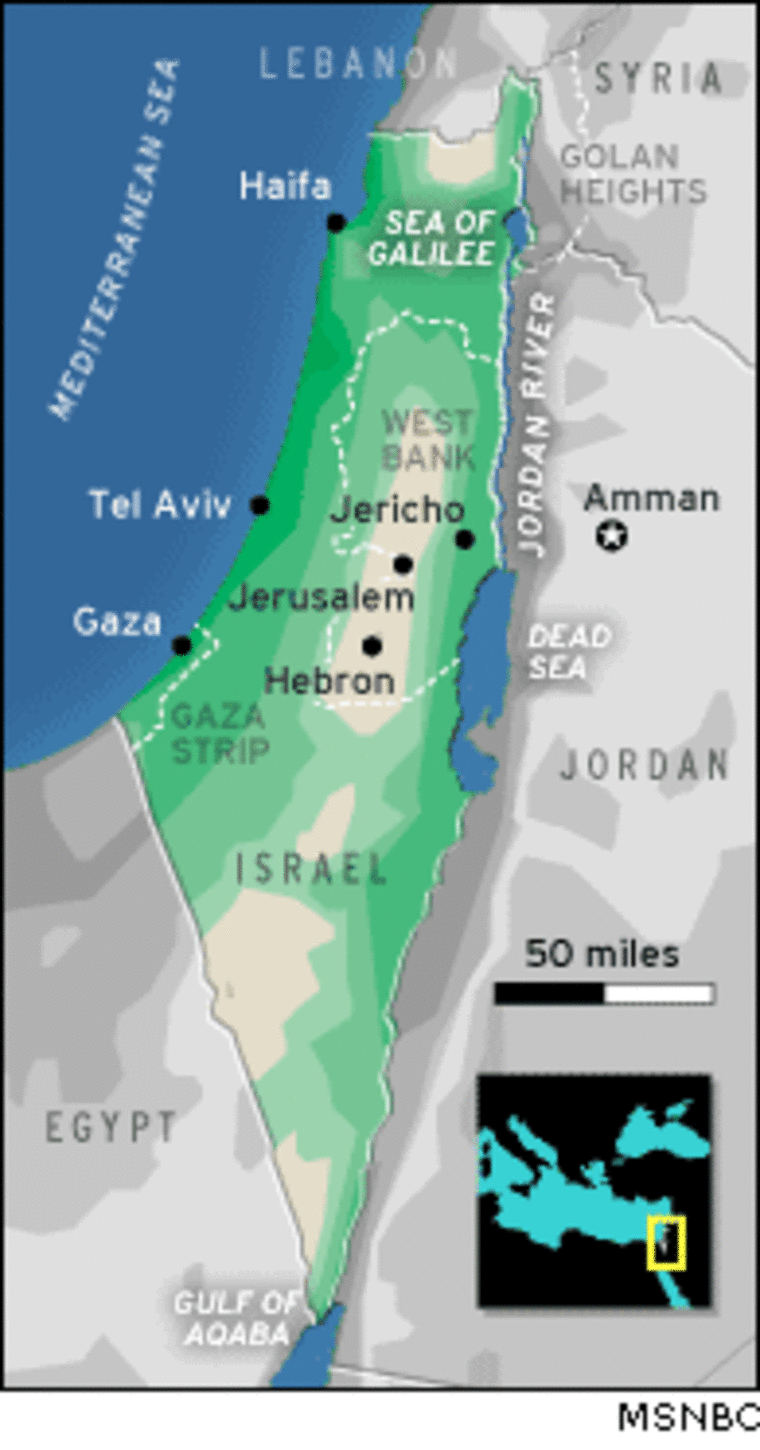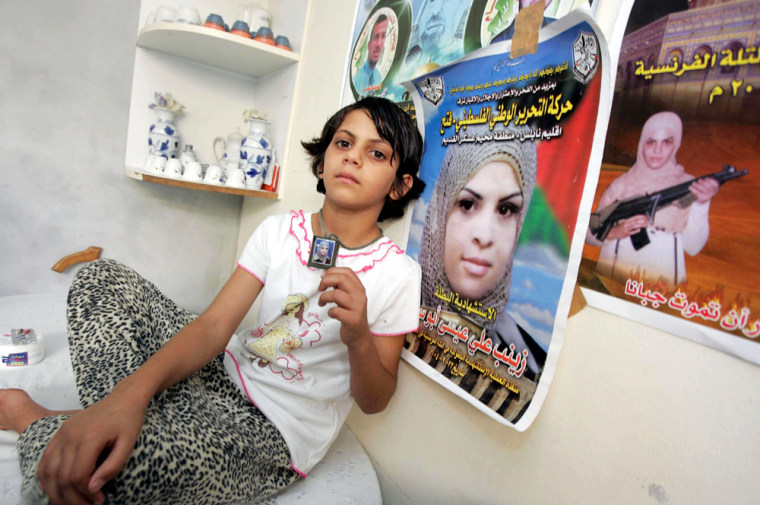“I boarded the bus, I thought about my family, my child, my wife. It was hard to decide, that was the hardest…I pay but others don’t…only we pay.”
These ticking flashbacks were spoken by a Palestinian suicide bomber named Rifat.
Rifat was strapped into a jacket containing bolts, nails, and most importantly explosives. He boarded the Israeli bus and sat all the way in the back waiting for the bus to fill up. His finger clutched the switch that would act as God to determine who would live and die.
Recounting Rifat's thoughts was Anat Berko, a 44-year-old with a PhD in criminology who recently completed her military career in the Israeli Defense Forces as a lieutenant colonel.
She spent the last eight years interviewing Palestinian suicide bombers, men and women, who had made the decision to enter paradise, and take as many Israeli civilians and soldiers with them.
People like Rifat, Nazima and Yosara, who failed to carry out their mission and were caught by the IDF have become the subject of Berko’s fascinating new book.
“The path to the Garden of Eden,” published in Israel is an insight into what goes on in a suicide bomber’s mind from first being recruited, until pressing the deadly button. Berko sought to find out the bomber’s motive, what deters him or her, what their family’s role is, and why a mother of two would kill herself and other mothers and their children.
Empathy found
In the book, Fatima’s story stood out as an extraordinary tale of a confused 25-year-old Palestinian woman. Fatima's name was changed, along with all of the other attempted bombers in the book, for her own protection. She met Berko several times and recounted that her decision to wear an explosive belt and kill innocent people came after her father disagreed with her desire to marry a Palestinian man she had fallen in love with.
“I’m going to take revenge against my father and become a shahida [martyr]," Fatima told Berko.
Berko said that the most powerful moment of all her encounters was when Fatima stood up and began to sob, her body trembling as she fell into Berko’s arms.
She was overwhelmed by the thought that “here I am comforting a suicide bomber and feeling pity toward her.”
Women true victims of society
In Berko’s book she interviewed male suicide bombers and the people in charge of recruiting them. But the most powerful accounts are the stories of Fatima, Nazima and Yosefa, would-be female suicide bombers who, as Berko put it, are truly the victims of Palestinian society.

Since January 2002 there have been seven terror acts by female suicide bombers. At least 20 more women were caught on their way or at the time of training. Most were in their twenties, and single.
“It is important that everyone in the western world take a deep look into these suicide bombers’ hearts and brains and try to understand their motives. Only then can an attempt be made to deal with this type of terror. I tried in the most honest way to reflect my conversations with them,” she said.
Berko’s parents were refugees from Iraq, her mother was 10 and her father was 20 when they had to leave a very comfortable life to come to Israel. Her background, coming from a Middle Eastern family, helped her mentally face these suicide bombers.
“I understand Arabic, I knew that when Fatima offered me a cup of coffee she had made I should accept it because it was a test of honesty, openness, courage and intimacy. I just couldn’t afford to show I was afraid. I made sure to dress respectfully and act the same, you have to remember that I’m a ‘Sabra’ — born in Israel — and that I have spent most of my life in the army.”
According to Berko, the people she interviewed did not know that she was a part of the Israeli army because she would change into civilian clothes for their interviews.
Speaking as a woman helped
She found that being a woman was definitely an asset in terms of connecting with people and getting them to open up.
“As a woman I felt that I represented a wife, a mother, a sister and a friend, which altogether brings intimacy and does not cause conflict. The conversations could be much more open and go in the direction of feelings.”
Berko made a point of getting her children involved in her work by asking them to write letters posing questions to the women. “My oldest daughter, Tzlil, asked why do you hate me, what just because I’m a Jewish girl living in Israel you want to kill me, why?”
“The letters my children wrote opened the women’s hearts, and the name of the game in that situation was feelings, because there is no rationale behind these suicide bombs,” said Berko.
Societal changes
In the book, Berko indicates that the social changes going on in the Arab world are a clue to what motives some suicide bombings.
The Internet and television play a huge role in Arab family lives. All the Western channels are accessible, but at the same time everything in the Arab society is so confined and closed. It is extremely difficult to watch all this, and yet to live another life in reality.
Berko explained how a lot of aspects of a Palestinian girl’s life are “eib” in Arabic – meaning “no, not allowed.” There is a constant sense of shame on you, no talking to men freely and no looking into a man’s eyes, no smoking and no short skirts allowed. These strictures on a growing youngster can push these girl’s into desperate acts.
In a few cases a suicide act is a rationale for a “bad” deed or a forbidden meeting with a man, the act could operate as a cleansing operation and free the woman from any guilt towards herself or her family.
In January 2004, 22-year-old Reem al Reyashi, mother of two, killed four Israeli soldiers and one civilian at the Erez Junction checkpoint in the Gaza Strip.
TheIDF claimed that Reyashi was forced to carry out this attack as punishment for cheating on her husband.
Hope remains
Berko remains hopeful that there can be a solution to the problems dividing Israelis and Palestinians so that they can see that side of the conflict. “We have to find a way to live in two separate entities as neighbor. The Muslim clergy must say out loud that these suicidal acts are against the Quran.”
Berko wanted to emphasize that suicide bombings have become a strategic weapon, a suicide bomber kills more people then does an act of terror.
“This is a poor man’s nuclear weapon, you don’t need a Tomahawk missile, this phenomenon is better. If a suicide bomber decides at the last minute he can turn 90 degrees from his target, to a new one, this is very powerful.”
The world is probably going to see more and more women in the role of suicide bombers because it is so easy to send them. The Western world is focused on the male as a terrorist, not a female.
Berko concluded that the problem for the Western world, seen especially in Iraq, is that suicide bombers are not afraid of killing other Arabs when they act.
She believes that this phenomenon is going to come back like a boomerang in Arab countries.
Berko noted how the last suicide bombing targeting Israelis — in Taba, Egypt in October — can be seem an example of how there is no distinction between victims as Egyptians were killed as well as Israelis.
